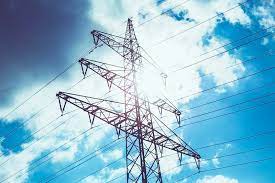
Arkansas will receive more than $10 million in federal grant funding over the next two years to improve the state’s power grid structure. The Arkansas Department of Finance and Administration announced on Wednesday that the first year, the state will receive $5.16 million with another $5.14 million during the second year. The grant is funded through the bipartisan Grid Enhancement Grant Program, which comes from the U.S. Department of Energy through the Infrastructure Investment and Jobs Act.
The 2021 infrastructure bill allocated $13 billion in new financing opportunities for the expansion and modernization of the nation’s electric grid.
From January to June, Arkansans were included in four major power outages caused by severe weather that affected more than 50,000 customers across four states for one or more hours. The first occurrence happened on Jan. 1, lasting 9.5 hours while impacting 60,958 customers. The second occurrence happened on Feb. 2, lasting 11.5 hours while impacting 74,426 customers. EF3 tornadoes damaged Little Rock, North Little Rock and Wynne on March 31, forcing customers to lose power for 2.75 hours for a third occurrence while impacting 58,368 customers. The fourth occurrence happened on June 25 due to a power outage, resulting in lost power for more than 22 hours for 64,732 customers.
“This year’s historic natural disasters underscored the critical importance of our electric grid,” said Gov. Sarah Huckabee Sanders in a statement. “We need the grid to run to keep our entire state moving. This investment will enhance our grid’s resiliency to help in future crisis events, benefiting Arkansans for years to come.”
The average Arkansan experienced 5.27 hours without electric service in 2021. That was down from a total of 11.81 hours in 2020, according to data gathered by the U.S. Energy Information Administration.
In its release, the Arkansas finance department noted that the goal of the Grid Enhancement Grant Program is to strengthen and modernize America’s power grid against wildfires, extreme weather and other natural disasters. Those who could qualify for grant money include electric grid operators, electricity storage operators, electricity generators, transmission owners or operators, distribution providers and fuel suppliers. The grant is designed to improve electric utilities and help fuel providers. Acceptable services that can be covered include relocating power lines, utility poles or placing electric lines underground.
“We will work closely with our partners to establish the process through which the grants will be distributed,” said Becky Keogh, infrastructure coordinator for the state of Arkansas, in a news release. “As Arkansans continue to recover from the March tornadoes along with other major weather events, we have a great opportunity to enhance our grid going forward.”
Grant guidance calls for “not less than a certain amount of the total federal formula funds to the state each year must be allocated to small utilities, based on the number of customers in Arkansas served by small utilities (those who sell not more than 4,000,000 MWh of electricity per year).”
According to a finance department program narrative for the grant, the department plans to use 5% of the grant funds for administrative costs.
“In addition to the initial $10 million, we anticipate more funding will be made available through the Grid Enhancement Grant Program,” said Jim Hudson, Finance Department Secretary, in a statement. “Citizens across the state partnered to support our fellow Arkansans affected by the historic weather events earlier this year. Investing in our grid is one more way we can take action to keep Arkansans safe should we ever face this again.”
Details regarding the application process and timeline will be posted to the finance department’s website. When applications have been submitted, the state infrastructure coordinator and the advisory committee will review completed applications for eligibility.
Criteria for whether an award is received includes:
- potential of the project to minimize the frequency and duration of power outages;
- potential benefits that would impact communities identified as vulnerable and/or disadvantaged;
- potential benefits to the community to be achieved because of the project (e.g., reducing the likelihood and consequences of disruptive events), with priority given to projects that will generate the greatest community benefit (whether rural or urban); and
- potential for the project to further develop and strengthen the workforce responsible for project implementation.





